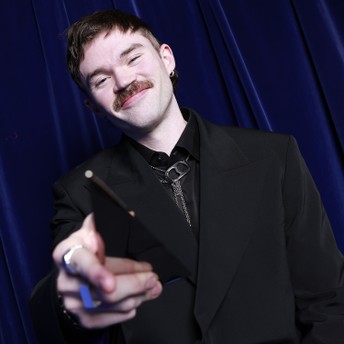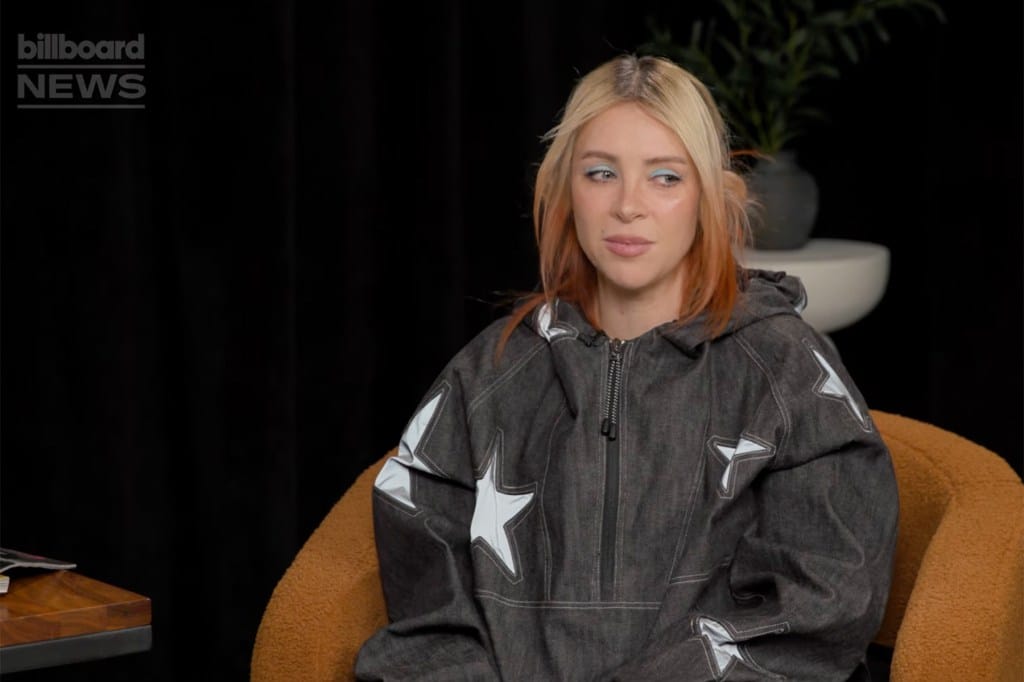Dance

Trending on Billboard
Skrillex will help kick off next year’s Bonnaroo Music & Arts Festival on June 11 on a roster that will also include Four Tet, Vince Staples and Spiritual Cramp, launching the four-day (June 11-14) gathering of the vibes in Manchester, Tenn. on the 700-acre ‘Roo Farm.
Explore
See latest videos, charts and news
Friday night’s roster will be topped by The Strokes, Griz and Turnstile and also include sets from Mt. Joy, Major Lazer, Jessie Murph, Yungblud, Geese, Cloonee, Lil Jon, Blood Orange, Wet Leg, Hot Mulligan, The Dare, Wolfmother and others.
Saturday night will be toplined by Rüfüs Du Sol, who will be joined by Teddy Swims, The Neighbourhood, Alabama Shakes, Chase & Status, Sara Landry, Rainbow Kitten Surprise, Freddie Gibbs & Alchemist, Amyl and the Sniffers, Sub Focus, Gorgon City, Flipturn, Passion Pit and more.
Sunday’s packed lineup will spotlight Noah Kahan, Role Model and Kesha, with support from Tedeschi Trucks Band, Lszee, Clipse, Mariah the Scientist, Daily Bread, Modest Mouse, Big Gigantic, Japanese Breakfast, Turnover, San Holo, Del Water Gap and more. Kesha will also curate a SuperJam, “Kesha Presents: Superjam Esoterica: The Alchemy of Pop” while beloved parody song master “Weird Al” Yankovic will perform a special late-night Saturday set, “Bigger & Weirder Saturday Late Night Roovue.”
The acts will perform around the clock on 10 stages, with tickets going on sale on Friday (Dec. 5) at 10 a.m. CT here. According to a release announcing the lineup next year’s ‘Roo will feature significant upgrades to the facilities, including improved drainage, miles of new roadways and 135 acres of new turf.
The upgrades come after last year’s event was canceled on Friday due to severe weather that wound up flooding campgrounds after kicking off the night before with sets from Luke Combs, Dom Dolla, Insane Clown Posse and Rebecca Black. Friday night’s headliners were scheduled to include Tyler, The Creator, John Summit and Glass Animals; Saturday’s lineup was topped by Olivia Rodrigo, Avril Lavigne and Justice; and Sunday would have wrapped up with Hozier, Vampire Weekend and Queens of the Stone Age.
Check out the full 2026 Bonnaroo lineup below.
Trending on Billboard
When Dom Dolla touches down in Australia, massive things happen.
The EDM star made a whirlwind visit to his homeland last week for the 2025 ARIA Awards, where he collected best dance/electronic release (with “Dreamin” featuring DAYA), his third consecutive win in that category, and global impact recipient award, becoming the first-ever recipient.
At the tail end of 2024, Dom (real name Dominic Matheson) played to 170,000 fans across four shows, the biggest-ever tour by an Australian electronic artist.
Explore
See latest videos, charts and news
Later this year, another entry for the history books. On Dec. 20, he’ll return to the scene of his ARIAs wins with a show at Sydney’s Allianz Stadium, next door to Hordern Pavilion, for what will mark the first time an Australian electronic music artist has played a stadium in these parts.
“Oh man, I’m so excited,” Dom exclusively tells Billboard.com. “We’re really taking the show to the next level. Can’t give away too much, but I’m pumped about how it’s all coming together. The goal is simple – turn a stadium into a nightclub.”
Untitled Group was behind the record-smashing 2024 trek, and the forthcoming open-air spectacle.
Dom has been in the fast lane throughout 2025, during which time he completed residences in Ibiza and Las Vegas; sold-out multiple dates at Madison Square Garden; pumped the party at some of the world’s best-known festivals, and realized a dream with “No Room For a Saint”, his contribution to F1: The Movie.
“There’s no slowing down next year, that’s for sure,” Dom enthuses. The year ahead will include “a few first tours in places like Asia and Latin America which I’m really excited about. And I’ve been writing a ton of new music lately, so I can’t wait to start sharing more of that with everyone soon.”
Next up, a headline spot at 808 Festival in Bangkok, Thailand. Following the Allianz Stadium date, Dom joins Australia’s Beyond The Valley and Wildlands festivals, followed by shows in Japan, Argentina, Colombia, New Zealand, Netherlands and elsewhere.
Might a Dom Dolla artist album emerge from that wealth of new material?
“Right now,” he continues, “I’m just writing as much music as I can. An album might not be right around the corner, but I can promise there’ll be a lot more music next year. I’m really excited about what’s been cooking.”
Trending on Billboard
This past January, Alison Wonderland tweeted an earnest request:
“Since cancelling 3 shows in December I have been getting constant s–t from Twitter, Instagram and Tiktok about it and it somehow isn’t dying down. I just want to let everyone know that I had to leave Asia for emergency surgery and then the week after I had a fever of 102 + for 4 days straight and couldn’t leave my bed.
“One day I will explain why I needed surgery,” she continued, “but right now I have not even processed it myself. I am asking nicely for all you ‘plur’ ravers to just be a bit more understanding- what I am dealing with in my private life right now is painful enough and I just want to concentrate on healing and music . Love u all.”
Nearly a year later, the producer sat down with Billboard News to talk about what she was going through during that time.
Speaking in mid-October, just weeks before she gave birth to her second son, Wonderland revealed that she experienced a miscarriage in December of 2024 that forced the cancellation of said shows. She says the online backlash she subsequently received “was so horrible, to have people so unsupportive and rude. And I had said ‘Look, I’m going through a lot. It’s surgery; it’s medical; it’s an emergency, please respect my privacy.’ And to this day I’m getting bombarded about the fact that I had to cancel shows at the end of last year. But I hope that you see this, and I hope you know it’s because I had a miscarriage … That sucked, because I did not feel like a person and I just didn’t want to have to tell everyone that. I wasn’t ready to. I don’t owe them that.”
Wonderland also reveals that this was her fourth miscarriage, with these experiences inspiring her June single “Again? F–k.”
“I was so messed up,” she says of writing the track. “I was like, ‘The only way I can get through this is writing a song with a sense of humor and like, kind of being aggressive about it, because it’s like, ‘How do I move forward?’” she also revealed that “I Want to Live in a Dream” is about “trying to escape that feeling of reality” which she felt due to the miscarriage but which she’s found is something many people around her are grappling with in various contexts.
“I think a lot of people at the moment feel like they don’t fit in anywhere,” Wonderland says. “A lot of people have said that to me, a lot of big artists have said that to me, that they’re struggling, because it’s very quick quick quick quick quick right now, and I’m an album artist. I’ll always be an album artist.”
To wit, both of the aforementioned singles come from Wonderland’s fourth studio album Ghost World, out Dec. 6. The producer says that the world building and story telling inherent in the album creation process is something that’s core to her creative process.
Elsewhere in the interview Wonderland discusses a sense of not fitting in in the dance world, her plans to tour again after giving birth and much more. Watch the complete interview above.
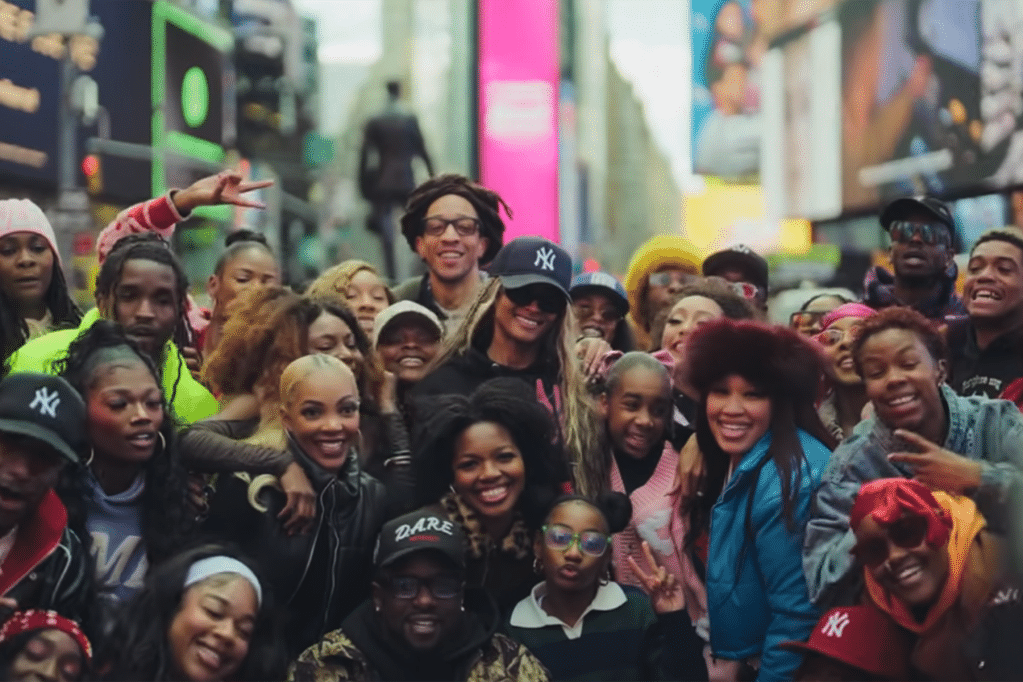
Trending on Billboard
Ciara has obviously adjusted well to her newest home sweet home.
In an epic new video, which Billboard is premiering exclusively below, Ciara takes to the streets of New York City for a 40-dancer Times Square flash mob celebrating her latest single “Nice n’ Sweet.” In addition to the CiCi deluxe track, which features Afropop artists MOLIY and Oxlade, the dancers also get down to “BRB” and the TikTok-viral “Low” in the “NYC Takeover” video, filmed on Nov. 17 during the early morning commute.
“I just knew being in the streets of New York dancing to ‘Low’ and ‘Nice n’ Sweet,’ which are very New York-ish, there’s an Afro-Caribbean influence in it — we know New York breeds that kind of energy throughout the streets,” Ciara told Billboard‘s Delisa Shannon. “So it just felt like the perfect place to have this moment and another ‘this place feels like home’ moment for me, which I loved.”
Alongside her NFL quarterback husband Russell Wilson and their four children, Ciara relocated to NYC ahead of the current football season, when Russ got picked up by the New York Giants.
“Everyone knows I’m from Atlanta, but at the same time, New York is showing our family tremendous love,” Ciara tells Billboard. “And as an artist, I feel like New York has put their arms around me too. And so this is another place that I call home. There’s just something so magical about being in the streets of New York. So I’ve never done a flash mob before. There was years ago where my team had put together a flash mob to celebrate me, but I never had done it where I just pop out in the middle of the streets and start dancing.”
The video begins with a small group of dancers taking turns in the center of a high-energy dance circle, set to “BRB” from the August album CiCi, before Ciara joins the chat in a Yankees ball cap, black sunglasses and blond braids past her waist for “Low,” featuring Diamond Platnumz.
The CiCi deluxe standout has been having a moment on TikTok, thanks to the “Low” Dance Challenge, and Ciara is grateful for the way the platform is spreading her music worldwide.
“The digital footprint has allowed for even more global expansion, you know?” Ciara tells Billboard. “And you get to see the influence of technology, where everyone and their mama can join in on the dance. And guess what? Everyone gets to see people shine in their own living rooms, right? I think there’s some kind of sense of ownership that people have, or a sense of empowerment when their videos go viral. And if we didn’t have these digital platforms, that opportunity wouldn’t exist. So I’ve learned to appreciate those moments and the power of those moments.”
Finally, the Nov. 14-released “Nice n’ Sweet” has its big moment, with Ciara joining the squad for some group choreography set to the Caribbean-influenced single. The star took the opportunity to take pics with all the dancers before hopping in her car and saying of the dance moment: “That was nice and sweet!”
Watch the video below, exclusively on Billboard.
–Reporting by Delisa Shannon

This week in dance music: Fred again.. played the first North American set in his 10 shows/10 songs/10 cities run, Dom Dolla told Billboard that “My head’s definitely spinning a bit, but I’m having so much fun along the way,” ahead of the ARIA Awards in Sydney on Nov. 19, where the producer became the […]
Trending on Billboard John Summit announced Friday (Nov. 21) that his Experts Only festival will return for year two in 2026. The news comes after a successful 2025 debut this past September, when the fest happened on Randall’s Island in New York City with a lineup including Summit collaborators and compatriots including Kaskade, Cassian, Green […]
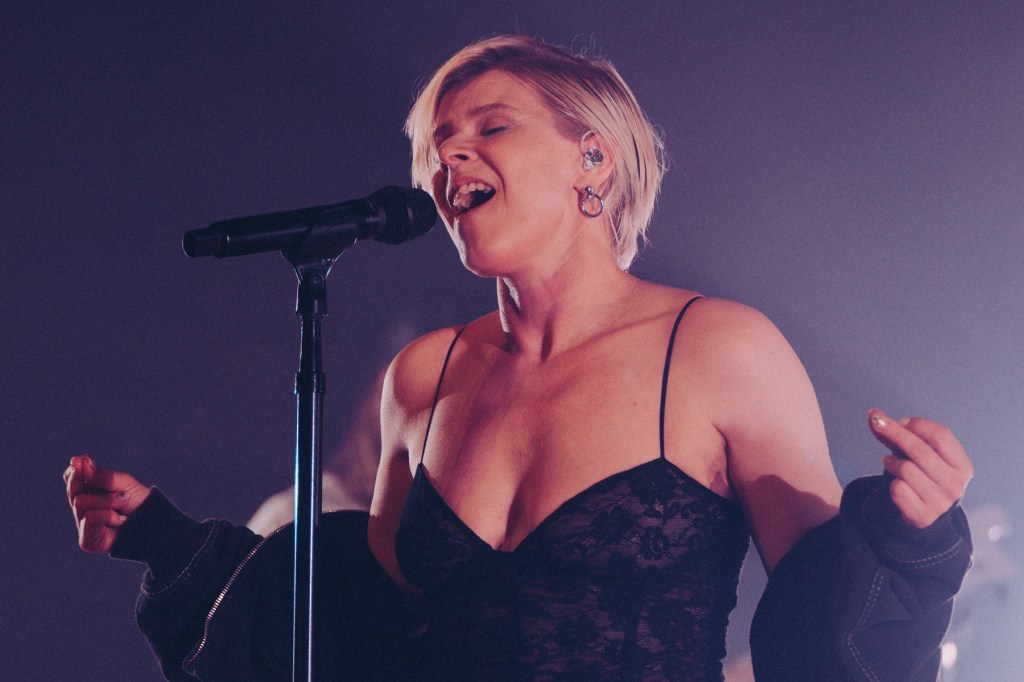
Robyn kick-started her one-off show at L.A.’s Fonda Theatre on Wednesday night with a supremely appropriate song choice: “Missing U.” After all, it’s been more than six years since the Swedish dance-pop icon mounted a full-length concert, so the 2018 Honey lead single’s lyrics “There’s this empty space you left behind” equally spoke to both […]

Trending on Billboard
With the holiday season fully swinging, we are officially in the most sentimental time of year, and Zeds Dead knows it.
As such, the mighty duo is sharing Channel Flipping 2: Only You, an epic mashup of classics by artists including Nas, Talking Heads, The Hollies, The Platters and Dionne Warwick, along with clips from films including The Mask and Midnight Cowboy and commentary by comedian Bill Hicks and the sage Tupac Shakur.
The pair spent more than a year making the six-and-a-half-minute clip. Watch it exclusively on Billboard below.
Altogether, the effect of Channel Flipping 2 is heartstring pulling, with the selections and edits whipping up nostalgia, inspiration and a spirit of purpose. The project comes a year after the release of Zeds Dead’s first Channel Flipping mashup, with this new one also extending the motif of the duo’s excellent March album, Return to the Spectrum of Intergalactic Happiness.
Designed to play like a space-time continuum flattening jukebox, the album’s tracks weave in dialogue from The NeverEnding Story and Scarface along with samples from Duke Ellington and Ella Fitzgerald, which are all nestled among the psychedelic bass music.
Below, the duo’s Zachary Rapp-Rovan talks to Billboard about the new mashup, the response to their latest album and why “there’s just something about nostalgia.”
How does Channel Flipping 2: Only You extend the ethos, philosophy and world-building of Return to the Spectrum of Intergalactic Happiness? And why release it now?
It’s all part of the same world so to speak. Over the last few years we’ve been building this concept at our shows of an old television set floating through space that picks up bits and pieces of broadcasts from the last 100 years. It’s also kind of an homage to hip-hop and DJing culture in general. The album and the Channel Flipping series both exist within that world.
As for why release it now? Basically because it’s finally at a place we feel comfortable putting it out. It’s been a while in the making, working on it here and there over a few years. It was started at the same time as the last channel flipping.
It’s been eight months since the release of the album. Do you think fans have really gravitated to and fully understood the concept behind it? What have they told you about it, and what it’s meant to them?
The response has been really amazing from what we can tell! I don’t think it really matters if they think about the concept or not to enjoy it, but most of them probably see it.
The album and this new video are so nostalgic. What does this nostalgic aspect say about where you’re at as artists and people? Has playing this music on tour hit differently, given the emotional layers?
There’s just something about nostalgia. Its hard to describe, but when you work with samples and cut and manipulate them, sometimes you can end up with some really interesting feelings. Sometimes it’s as if it takes you back to a time you were never a part of but it feels you were, a strange familiarity or something. It’s not something you can make happen every time, but when you hit in it, it’s kind of exciting. It’s not the only thing we love to mess with, but it’s definitely been something we’ve always revered in music I guess you could say.
We had this idea a few years ago to have the person that we sampled playing on the screen at the same time so people could kind of see what’s going on. Most of the time when you’re at a set, you hear a vocal and don’t know where it’s from, but we thought it would be cool to see the original performer if we could find a cool video of it. It adds this extra dimension of emotion sometimes to see that. We’ve just been continuing down that path ever since.
A darn shame it wasn’t nominated for a dance/electronic Grammy. Were you hoping for a nomination?
We thought it was a longshot, but we submitted anyway, just ’cause why not? We don’t take it as a snub, at the end of the day we’re pretty underground and it would be more of a big surprise if we were nominated. We’re not in this thing for awards — being able to work in music and share it with people is award enough.
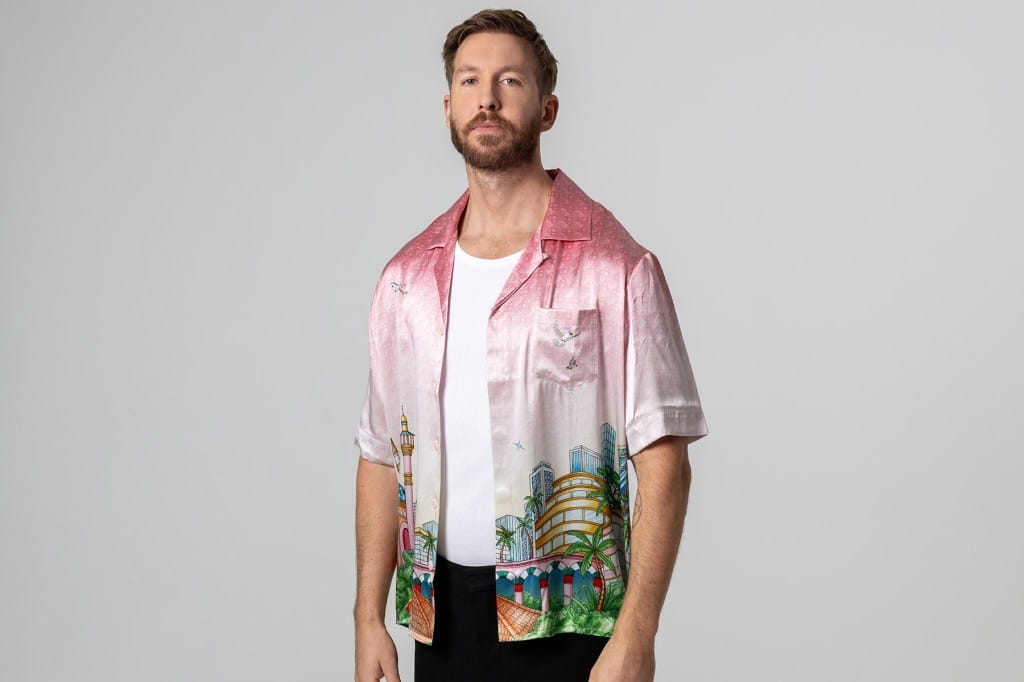
Trending on Billboard Calvin Harris, John Summit and Peso Pluma are set to headline AT&T Playlist Live! on Jan. 17 and 18 in Miami Beach ahead of the College Football Playoff National Championship. The star-studded concert is free for fans, with doors opening at Lummus Park on Ocean Drive at 6 p.m. ET on both […]
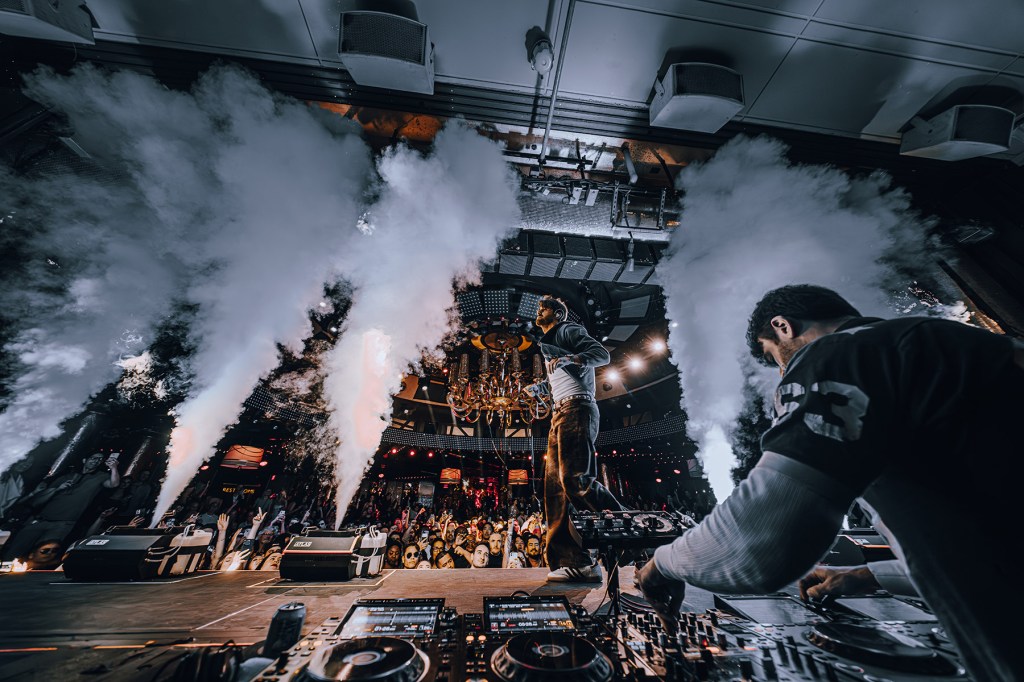
Trending on Billboard As Las Vegas locks in its 2026 DJ residencies, The Chainsmokers are sticking with their longtime home at Wynn Nightlife. The property confirms that the duo, Alex Pall and Drew Taggart, have extended their contract with Wynn Nightlife for the next three years, meaning they’re playing Wynn’s Encore Beach Club and XS […]

 State Champ Radio
State Champ Radio 